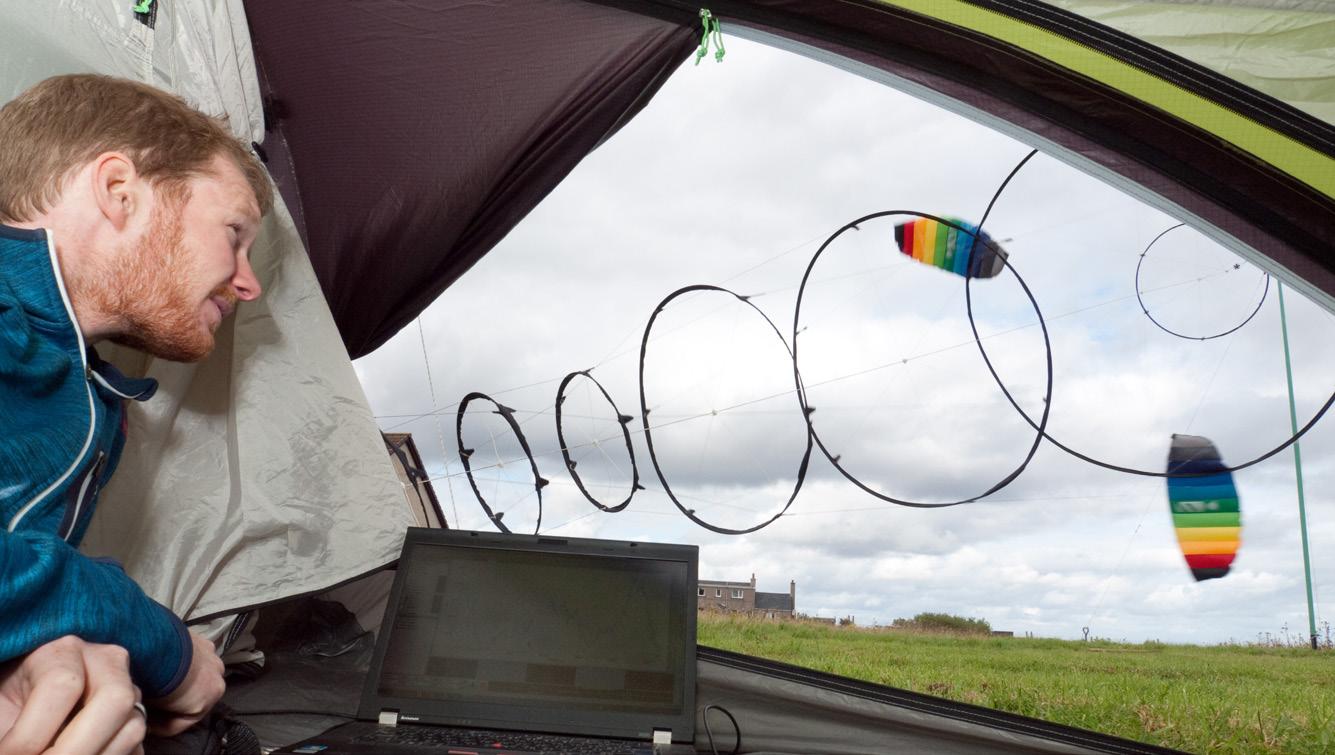SPARKING THE TRANSITION TO LOW CARBON ENERGY IN THE OUTER HEBRIDES AND BEYOND What would ideal energy systems look like in the Outer Hebrides in the next 15-20 years – and how can we get there? That’s the question at the heart of a new Europewide project, and HIE is helping provide the answers. The Outer Hebrides has been chosen to represent the Highlands and Islands in an exciting new three-year project to identify a vision and support the transition to low carbon energy. The Responsible Research and Innovation Policy Experimentations for Energy Transition (RIPEET) is bringing together communities, business, academia, government and the environmental sector to explore how to accelerate sustainable energy innovations and solutions. Three pilot regions have been chosen – the Outer Hebrides, Ostrobothnia in Finland and Extremadura in Spain. HIE and Community Energy Scotland are working together to deliver the Scottish part of the project, which kicked off in summer 2021 with the creation of a Transition Lab of stakeholders from across the Outer Hebrides. The Transition Lab is exploring what regional energy systems could look like in the future, setting out a vision, and shaping and creating change. Throughout the project, research will be carried out to understand what common policies, drivers and processes are needed to promote the transition. RIPEET includes €50,000 funding for an open call for solutions to meet an identified pressing regional energy need. This could be anything from a social or technological innovation to the creation of a new organisation or piece of research. “We’re looking to develop a methodology for energy transition and innovation which is really inclusive, accessible and rooted in the needs of the local area,” explains Sarah Marshall, RIPEET senior project manager at HIE. “It’s about putting local people at the heart of sparking change, identifying the steps that will help us transition to low carbon, and setting out the priorities.”
16
SYNERGIES AND SHARED AIMS RIPEET is now one of many small and large projects, organisations and individuals working to combat climate change in all kinds of innovative and creative ways. Linking with similar projects, sharing connections, research and learnings, and benefiting from the groundwork laid, has already proven invaluable. Rona Mackay, head of operations and governance at Community Energy Scotland, is involved with many of the projects in the region and is eager to take advantage of these synergies. “We’re currently working on the Uist Local Energy Plan (ULEP), along with a steering group from the local community and, of course, it makes absolute sense to work up this plan at the same time as RIPEET,” Rona explains. “RIPEET is on a different scale – it’s much heavier on the research side, and more academic. The ULEP can piggy-back on this research and knowledge, and vice-versa, with projects coming out of the ULEP that could potentially come under the umbrella of RIPEET.” Likewise, the Islands Centre for Net Zero, which is funded by the Scottish Islands Growth Deal, is a research and technical facilitator to help Orkney, Shetland and the Outer Hebrides achieve net zero carbon energy by 2030. Again there is shared focus and overlap with RIPEET, which Rona is keen to capitalise on.








